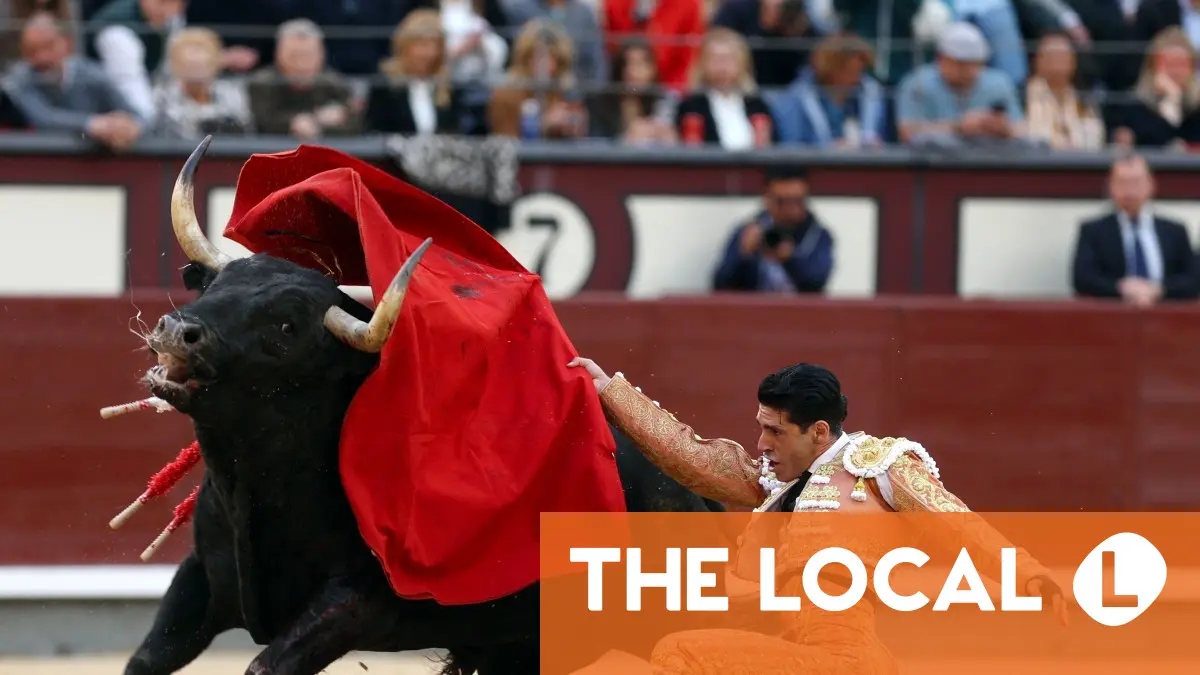Inside Spain: Don't expect bullfighting to be banned anytime soon

In this edition of Inside Spain, we look at how the ruling Socialists have turned their backs on the possibility of removing bullfighting's protected status, thus ensuring that the controversial spectacle keeps taking place freely.
This week, Spanish lawmakers in the Lower House rejected a petition titled "It's Not My Culture" which called for bullfighting to no longer be classified as a form of cultural heritage in Spain.
Despite having nearly 665,000 signatures of support from the general public, the proposal received only 57 votes in favour, 169 against and 118 abstentions, including those of the ruling PSOE, whose position was instrumental in halting its processing.
The objective of the proposal was to repeal Law 18/2013, which grants legal protection to bullfighting throughout the country and returns powers to the regional governments, allowing each to freely decide whether to maintain or prohibit these events.
That 2013 national regulation overturned the 2010 Catalan bullfighting ban and the 2018 Balearic regulation which prevented the killing of bulls in the bullring (bull-themed events still take place in both regions).
Critics such as Nahuel González of the Spanish government’s hard-left junior coalition partner Sumar criticised the vote and described bullfighting as "institutionalised cruelty" and an "insult to collective intelligence."
"Bullfighting doesn't sustain itself, it's sustained by public funds," he stated, asking that these resources be allocated "to creation, not cruelty."
Etna Estrems of left-wing Catalan party ERC argued that "culture evolves" and that "it can't be culture to see a living being bleeding to death in a bullring."
Similarly, other parties in Spain such as EH Bildu, Podemos, Compromís, and the BNG defended the initiative's progress, out of respect for "animal rights and the sensibilities of modern Spanish society."
READ ALSO: Divisive bullfighting documentary wins top prize at Spain film festival
But not Spain’s ruling Socialists, who stood by their abstention by asserting that they "neither prohibit nor promote" bullfighting, and that "Spain is not homogeneous".
The role of the State "is not to decide what is or is not culture, but rather to guarantee the freedom to create, feel, and express," Socialist spokesperson Maribel García told journalists.
As expected, centre-right PP and far-right Vox voted to keep bullfighting protected, and stated that las corridas de toros (bullfighting) is "the people's culture".
Vox spokesperson Pepa Millán even went as far as claiming that "bullfighting was one of the backbones of Spanish society during the 20th century" and that there have been failed attempts to ban bull-themed spectacles ever since the rule of Alfonso X in 13th century Spain.
Crucially, this week’s vote clarifies that Pedro Sánchez’s party may see itself as progressive, but banning bullfighting, or restricting it, doesn’t enter the Socialists’ plans for this term in office.
Keeping in mind that it’s hard to envision a Spain that isn’t governed by either the PSOE or PP, it may be even longer before there is a real national debate about whether bullfighting should stay or go.
Bullfighting is quite possibly the one part of stereotypical Spanish ‘culture’ that foreigners most struggle to understand, let alone support.
Having not grown up seeing it on TV or up close in the plazas, it hasn’t been deeply entrenched in their minds and normalised, which explains why many of our readers are outspoken and call the practice barbaric and cruel.
That's not to say that there aren't millions of Spaniards who staunchly oppose la tauramaquia and see it as something that's no longer acceptable or representative of modern Spain.
Unfortunately, there a huge disparities in surveys regarding bullfighting depending on the source (political inclinations and vested interests no doubt playing a role), making it virtually impossible to truly know how much support there really is for it among the Spanish population.
Could it be that bullfighting was seen as too divisive a subject by the ruling Socialists for it warrant taking sides? Too risky without enough of a return on investment?
For the time being, nothing changes. The 2013 law will remain in force, and bullfighting will continue to enjoy protected cultural heritage status throughout Spain.
Please sign up or log in to continue reading
thelocal





